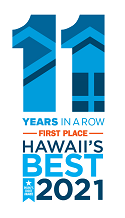
Organize your finances
You may be thinking: "I'm not 100% ready to own yet." That's OK. Even if you're not ready to own right now, you should still talk with a qualified loan professional to see what price range you could comfortably afford. Once you're ready to start looking for a home, you'll already have your price range nailed down. This makes the process of looking for homes much easier and much less time consuming. Talk to your Locations agent to arrange a meeting with a qualified lender. The best part? It’s free!
How much can you comfortably afford?
To answer that question, lenders look at the elements that make up your financial profile. This includes your credit history, the cash you have available for a down payment and closing costs, your income, and your current debt and financial obligations. Then, taking the current interest rate into account, your lender will give you an estimated maximum loan. By adding your loan amount to the funds that you plan to use for your down payment, you will now know your home purchase price range.
What determines how much I will be approved for?
Two general guidelines are used by lenders to determine the loan amount that’s best for you. Based on your individual financial profile, these guidelines ensure that your expenses and debt payments don’t take up too much of your income. These guidelines help you to remain inside your financial comfort zone after you become a homeowner.
The first guideline is known as the housing expense-to-income ratio. It compares your proposed monthly home payment (PITI) to your total household gross monthly income. The second guideline is the debt-to-income ratio. This compares your anticipated monthly loan payment to your gross (pre-tax) monthly earnings and your monthly debt payments. Monthly debt includes expenses such as credit cards, car loans, student loans, consumer loans, and other financial obligations such as child support and alimony.
Many of today’s loan programs offer guidelines with more flexible qualifying ratios that allow you to devote more of your gross monthly income to your combined monthly debt. Your home loan consultant will help you to get a good idea of the maximum loan amount you can comfortably afford.
How important is my credit?
Your credit report is an important consideration to lenders reviewing your financial profile. If you have a history of paying your monthly obligations on time, that’s a signal to a lender that you are likely to make your monthly loan payments on time, too. Your credit can also be a factor in the type of loan program for which you may qualify.
Your credit history can also affect the amount required for a down payment, the amount you can borrow in relation to your income and the interest rate you are offered. Keep in mind, even if you have no established credit history or less-than-perfect credit, there are loan programs that can help you own a home.
Here are some steps you can take to establish or improve your credit rating:
- If you’ve always paid cash or used checks to make purchases and haven’t established a credit record, it’s a good idea to do so before you start looking for a home. Begin to use credit responsibly, make prompt payments and pay off the balance.
- Some loan program guidelines allow “alternative” credit records. If you have a limited credit history, your paid receipts and canceled checks for rent and utility payments can also help to document a pattern of paying your monthly obligations on time.
- If you already have outstanding loans or credit card debt, pay off as much as possible. The amount of monthly debt that you are responsible for paying reduces your capacity for taking on new debt for a home loan.
How much do I need for a down payment?
In the past, saving money for a down payment was often the greatest obstacle to homeownership. Lenders often required a down payment of 20 percent down or more. Today, many loan programs allow you to put down as little as 3 percent. In fact, you may qualify for programs that require no down payment at all.
You may also be eligible for local down payment assistance programs. If one is available in your area, your home loan consultant can give you the details.
If you decide to put down less than 20 percent, your lender may require Private Mortgage Insurance (PMI). These insurance programs protect the lender in the event you do not fulfill your commitment to repay the loan. Fortunately, PMI rates these days are also very low, and some loan programs don’t require PMI, even with less than 20% down.










